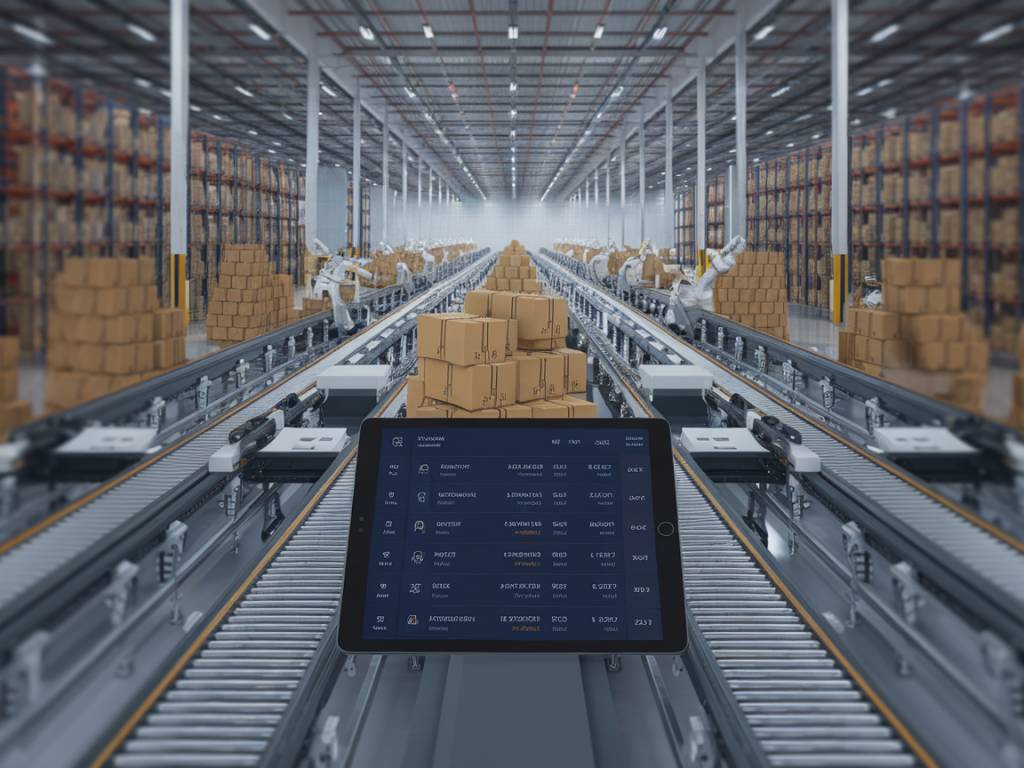The Rise of Blockchain in Supply Chain Management
Supply chain management has always been a complex web of logistics, documentation, and coordination among multiple stakeholders. In recent years, blockchain technology has emerged as a transformative force, offering unprecedented transparency, efficiency, and security. In 2024, businesses across various industries are leveraging blockchain to solve persistent supply chain challenges and gain a competitive edge.
How exactly is blockchain revolutionizing supply chain management this year? Let’s take a closer look.
Enhanced Transparency and Traceability
One of the most significant advantages of blockchain in supply chain management is its ability to enhance transparency. Traditionally, tracking the journey of raw materials to finished products was cumbersome, plagued by inaccurate data, fraudulent records, and opaque sourcing practices. Blockchain solves this by providing an immutable and verifiable ledger of transactions.
For instance, Walmart has been utilizing blockchain to track food products from farm to shelf, reducing the time needed for traceability checks from days to mere seconds. This level of transparency benefits not only corporations but also consumers who demand proof of ethical sourcing and sustainability.
Combating Fraud and Counterfeiting
Counterfeiting remains a massive issue across industries, from luxury goods to pharmaceuticals. Blockchain’s decentralized and tamper-proof ledgers make it nearly impossible to alter records, providing a reliable authentication method.
The pharmaceutical industry, for example, has been particularly vulnerable to counterfeit drugs. IBM and Merck’s blockchain-based initiative aims to authenticate drugs throughout the supply chain, ensuring that only legitimate products reach consumers. This directly impacts patient safety and regulatory compliance.
Streamlined Documentation and Smart Contracts
Supply chains generate enormous amounts of paperwork, from invoices to compliance certificates. Traditional methods of handling these documents are inefficiencies prone to errors. Blockchain eliminates much of this paperwork by digitizing documentation and employing smart contracts.
Smart contracts are self-executing agreements with terms embedded in code. For example, a shipping company can use smart contracts to release payments automatically once a shipment reaches its destination, removing intermediaries and reducing disputes. By automating these processes, businesses save time and cut administrative costs.
Improving Supply Chain Resilience
The COVID-19 pandemic underscored the vulnerabilities in global supply chains, prompting businesses to seek more resilient solutions. Blockchain plays a crucial role by enabling real-time visibility into supplier networks, reducing dependency on a single supplier, and allowing faster responses to disruptions.
Companies like Ford and BMW are using blockchain to track the sourcing of raw materials such as cobalt for electric vehicle batteries, ensuring ethical mining practices while minimizing supply disruption risks. This level of visibility helps businesses pivot strategies quickly when disruptions arise.
Reducing Costs and Increasing Efficiency
Traditional supply chains are laden with inefficiencies—manual data entry, intermediaries, and inconsistent record-keeping all contribute to delays and higher operational costs. Blockchain automates many of these processes, reducing expenses related to administration, product recalls, and fraud.
A study by Deloitte found that supply chain costs could be reduced by at least 50% through blockchain integration. The reduction in cross-border payment fees and loss prevention makes blockchain an attractive solution for enterprises seeking cost efficiencies.
Key Industries Leading the Way
Several industries are leading the charge in integrating blockchain into their supply chain operations:
- Retail and Consumer Goods: Companies like De Beers and Nestlé use blockchain to ensure the authenticity of products and responsible sourcing.
- Pharmaceuticals: Blockchain helps verify drug authenticity, ensuring compliance with strict regulatory standards.
- Automotive: Manufacturers track raw materials and parts to prevent fraud and confirm ethical sourcing.
- Food and Agriculture: Blockchain ensures food safety by tracking contamination sources swiftly.
Challenges and Adoption Barriers
Despite its advantages, blockchain adoption in supply chain management is not without challenges. Some key hurdles include:
- Integration Complexity: Implementing blockchain requires businesses to overhaul legacy systems and train employees, which can be both costly and time-consuming.
- Scalability Issues: Current blockchain networks face scalability concerns, especially when handling large volumes of transactions in real-time.
- Regulatory Uncertainty: Governments and regulatory bodies are still formulating policies around blockchain use in supply chains, leading to uncertainty for businesses.
- Industry Collaboration: For blockchain to be truly effective, multiple participants within a supply chain must adopt it, which requires collaboration that may not always be feasible.
The Future of Blockchain in Supply Chains
The trajectory of blockchain in supply chain management remains promising. As technology evolves, solutions to scalability and regulatory challenges will emerge, simplifying adoption for businesses of all sizes. Furthermore, the rise of Web3 and decentralized finance (DeFi) could enhance blockchain’s role in supply chain financing, enabling faster and more secure transactions.
Businesses that embrace blockchain early are positioning themselves to reap long-term benefits, from increased efficiency to heightened consumer trust. With major corporations already demonstrating blockchain’s potential, the question is no longer whether this technology will reshape supply chains but rather how quickly industries will adapt.
